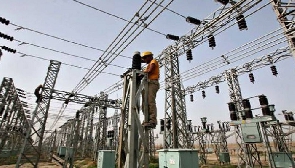In yet another display of the precarious state of the Nigerian power sector, yesterday, news reports revealed that the power grid had collapsed. The grids are currently under the management and control of the Transmission Company of Nigeria (TCN) which remains the only part of the power value chain that is owned by the Federal Government of Nigeria (FGN) since the unbundling and privatization of the sector in 2013.
The recent collapse is the second Wednesday of blackout across the nation in 2021. While the TCN noted that efforts are ongoing at resuscitating the grid and resuming load distribution, the pertinent issue of forestalling a recurrence remains unaddressed.
The Nigerian power sector since its privatization in 2013 has recorded c.128 instances of collapsed power grid. The management of TCN has at various times clamoured for reserves to cushion or perhaps forestall the occurrence of these events. Recently, on 23 July 2021, the TCN made another case for the urgent need for a spinning reserve in case of interruptions on the national grid to the Nigeria Electricity Regulatory Commission, but approval is yet to be given.
TCN oversees transmission – wheeling power around the grid and installing transmission lines. One of the main reasons the FGN privatised the sector was because NEPA/PHCN had not kept up with investing in the electricity transmission infrastructure – the critical link between generating and supplying electricity to the end-user. Our concern here is that the NEPA/PHCN pattern of non-performance has continued till date.
It goes without saying that transmission is a critical aspect of the power value chain. The GenCos and the IPPs can ramp up available capacity closer to installed capacity; the DisCos can improve their distribution networks, optimise metering and improve collections efficiency; and gas supply and the gas transportation pipeline network can be made fit for (domestic) purpose. But, if it is not possible to transmit the electricity produced by the GenCos to the DisCos consistently and effectively, the entire system collapses figuratively and physically. Electricity cannot be stored so that which is not transmitted will be stranded due to lack of evacuation capacity.
Business News of Thursday, 29 July 2021
Source: nairametrics.com













